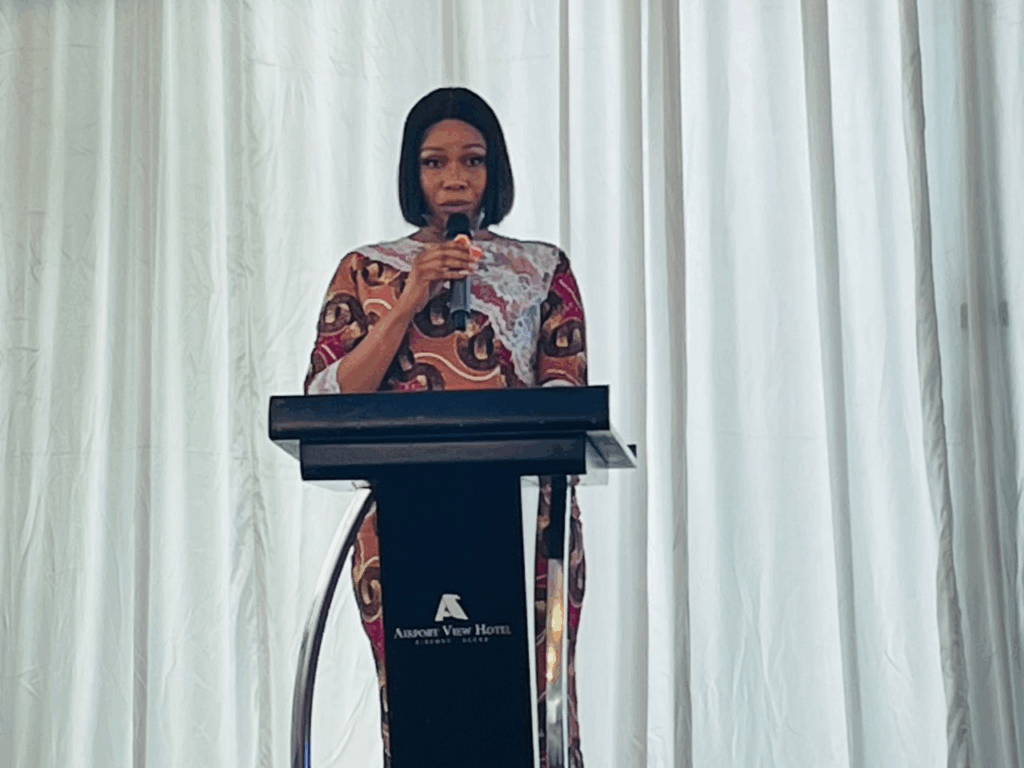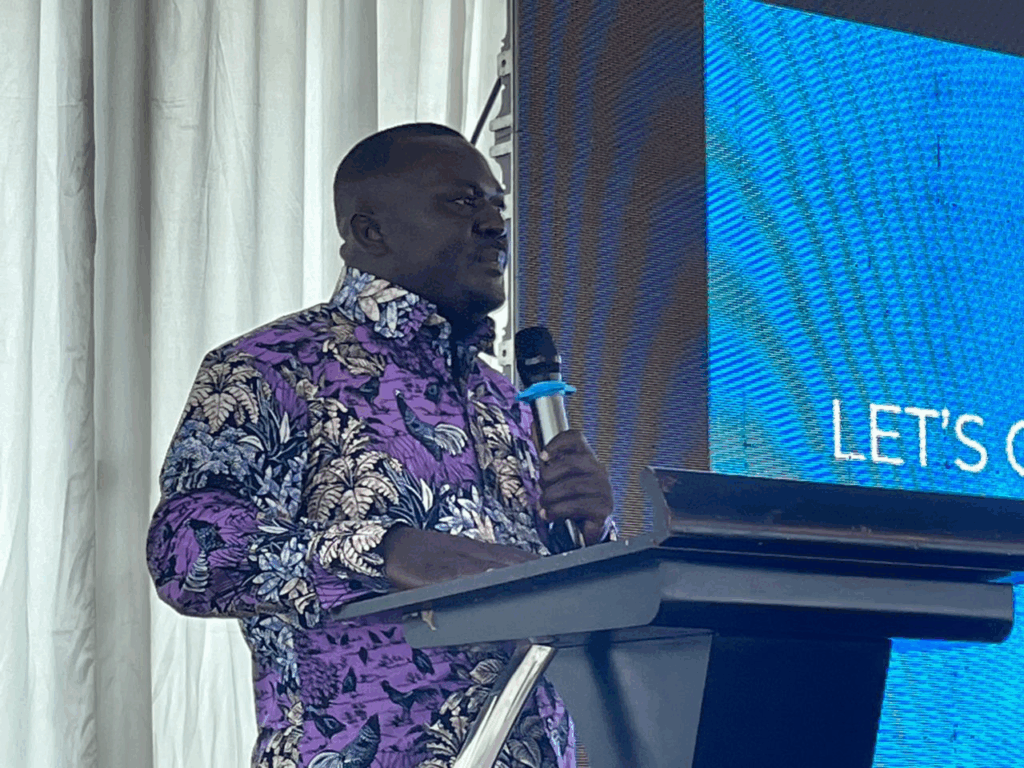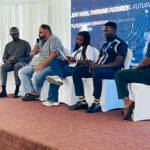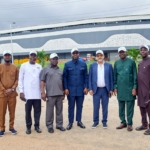
The Ghana Hubs Network has held its 2025 Annual Gathering of Hubs in Accra to deepen collaboration and strengthen innovation across Ghana’s entrepreneurship landscape.
The two-day event, themed ‘Resilient Hubs, Thriving Futures: Strengthening Ghana’s Innovation Ecosystem,’ brought together hub leaders, entrepreneurs, development partners, and policymakers to discuss strategies for accelerating digital transformation and inclusive job creation.
Yaw Adu-Gyamfi, Chairperson of the Ghana Hubs Network, highlighted the growing footprint of hubs across the country. He said over 100 active hubs, including 80 under the Ghana Hubs Network, have trained more than 12,000 youth and women, and supported over 6,000 startups and small businesses.
In 2024 alone, the network mobilised $4 million in funding from partners including NEIP, GIZ, the Mastercard Foundation, and Ashesi University.
Adu-Gyamfi stressed the urgent need for a supportive policy environment, particularly the swift passage of the Startup and Innovation Bill. He also called on academia, government, and private sector players to invest more in youth-driven innovation, especially beyond Accra.
One key highlight of the gathering was the launch of a Gender-Responsive Toolkit developed in collaboration with GIZ and GFA Consulting Group to boost the inclusion of women and persons with disabilities in innovation spaces.
NEIP Reaffirms Support for Innovation Hubs
Joan Selasie Ahiawordor, Deputy CEO of the National Entrepreneurship and Innovation Programme (NEIP), reaffirmed the agency’s commitment to strengthening innovation hubs as engines for inclusive growth.
Speaking on behalf of the NEIP CEO, she described the gathering as “a platform where impact is created, ideas are shaped, and partnerships are built.”
She outlined NEIP’s focus areas: building entrepreneurial capacity through training and mentorship, improving access to funding and markets, and reinforcing the broader startup ecosystem through strategic alliances.
She cited NEIP’s flagship Adwumawura Programme, aimed at creating at least 10,000 businesses annually, particularly among women, persons with disabilities, and underserved communities. More than capital, she said, the programme offers mentorship, training, and business development support.

“Hubs are where many entrepreneurs take their first steps,” she noted. “You are the first responders in building resilience.”
Ahiawordor also announced new partnerships with hubs, including co-hosted incubator and accelerator programmes, direct technical support, and inclusive policy feedback systems.
GIZ Urges Stronger Collaboration for Policy Influence
Emmanuel Mumuni, Programme Component Manager at GIZ, reaffirmed the agency’s long-standing commitment to Ghana’s innovation ecosystem. He lauded the evolution of hubs from marginal players to vital parts of SME development.
“Today, it’s hard to find an SME that hasn’t interfaced with a hub, whether through training, funding, or mentorship,” he said.
He urged hubs to strengthen their institutional capacity and speak with a unified voice, especially on critical issues such as cybersecurity, digital inclusion, and the pending Startup and Innovation Bill.
“As development partners, we prefer to work with structured, united groups,” he said. “The Ghana Hubs Network presents a great opportunity to collaborate on impactful, scalable initiatives.”
Florence Toffa: Africa Must Not Be Left Behind in AI
Director of Mobile Web Ghana, Florence Toffa, urged African countries to become active participants in shaping artificial intelligence (AI) rather than remaining passive consumers.
Speaking on a panel about private sector participation in innovation, Toffa said Africa must move beyond just using AI tools and start building local solutions and labs.
“We often sit back and observe while others lead. But this time, we must create and innovate,” she said, referencing Ghana’s national AI strategy.
Toffa noted that many international partners are eager to help African innovators access funding—if local actors are willing to ask.
“One CEO offered to write grant proposals for us in French, without taking a commission,” she revealed. “Sometimes the biggest barrier is simply asking for help.”
GFA Consulting Group Champions Grassroots Innovation
Alhassan Muniru, Digital Innovation and Partnership Manager at GFA Consulting Group, said the firm is partnering with over 15 hubs across Ghana to support early-stage startups.
“The private sector is the engine of growth,” he said. “If we want real impact, we must work with grassroots actors—hubs and young innovators.”

Muniru said GFA facilitates access to funding and builds internal capacity for smaller organisations that lack resources.
“This approach strengthens sustainability and creates a multiplier effect across the ecosystem,” he added.
Private Sector Involvement is a Game-Changer – MEST Africa
Ashwin Ravichandran, Portfolio and Programs Advisor at MEST Africa, said meaningful private sector engagement—not just funding—is key to ecosystem growth.
He praised companies like MTN for going beyond sponsorships and participating directly in hackathons and innovation events.
“That kind of strategic involvement transformed how MTN was viewed in the ecosystem,” he said.
He also cited MedPharma, a startup backed by ecosystem support programmes, which is now preparing to launch an affordable health insurance product through MTN Mobile Money.
Ravichandran emphasised the power of collaboration: “The real breakthroughs happen when the private sector, development partners, and innovation hubs align efforts toward common goals.”
- President Commissions 36.5 Million Dollars Hospital In The Tain District
- You Will Not Go Free For Killing An Hard Working MP – Akufo-Addo To MP’s Killer
- I Will Lead You To Victory – Ato Forson Assures NDC Supporters
Visit Our Social Media for More




